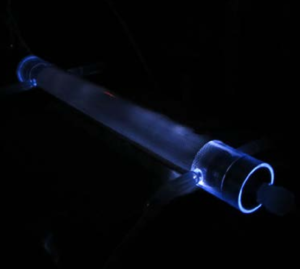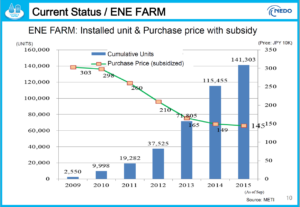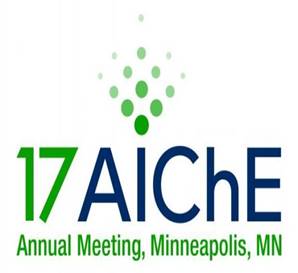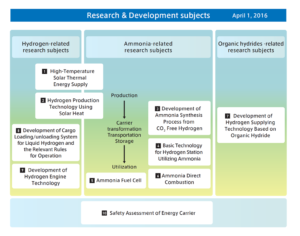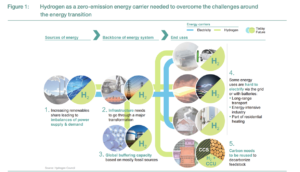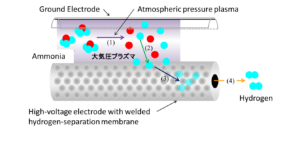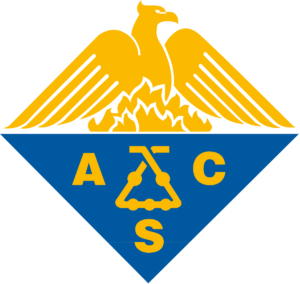On the Ground in Japan: FCV Uptake and Hydrogen Fueling Stations
Module four of the ten-module research and development agenda for Japan’s Cross-Ministerial Strategic Innovation Promotion Program -- Energy Carriers is entitled “Basic Technology for Hydrogen Station Utilizing Ammonia.” The rationale for including this technology is that “high purity H2 supply system with low cost hydrogen transportation is a key issue to spread fuel cell vehicles (FCVs).” A story published last week in the Tokyo Shimbun says that to date FCVs have not spread very far. Among the factors seen as constraints is the cost of hydrogen fueling stations (HFS). The Tokyo Shimbun story states that “according to industry officials, each station that supplies hydrogen to fuel cell vehicles runs about ¥400 million ($3.6 million) in construction costs. In order to achieve profitability, about 1,000 fuel cell vehicles are required as customers per location. Construction is not proceeding.” So far, the players focused on FCVs do not seem to be looking to ammonia as an expedient that will help reduce the cost of HFS and thereby encourage their construction and by extension the uptake of FCVs. This appears to be a missed opportunity whose benefits may become too compelling to ignore.
